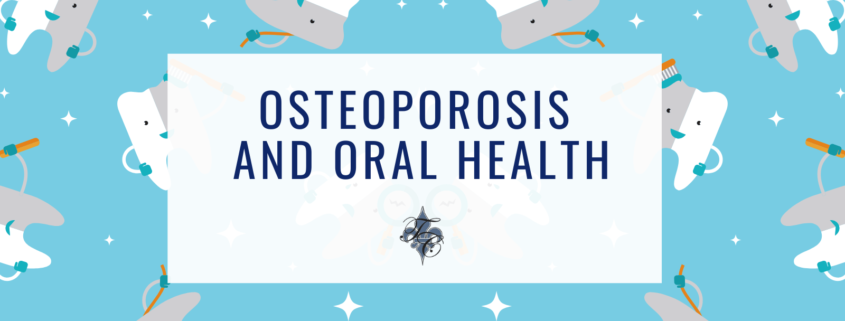Osteoporosis and oral health
Osteoporosis — which literally means porous bone — is a disease that lowers the density of bones in the body, drastically increasing risk of fractures, and because it’s a silent progressive disease, you likely won’t know you have osteoporosis until that first painful fracture occurs.
It’s a disease that’s largely caused by the loss of a specific hormone, particularly in post-menopausal women and women over 60.
Not only does this disease impact the bones in your body, it also can negatively affect your oral health.
When osteoporosis hits your jawbone, it weakens it, sometimes triggering gum diseases and tooth loss. Even if you wear dentures, osteoporosis can still impact your mouth by disturbing the body ridges that hold your dentures in place. Ask anyone with dentures: Poor-fitting dentures can cause unbearable pain.
Women are three times as likely than men to suffer from osteoporosis-related oral health problems, and sometimes the very medications that are prescribed to treat osteoporosis have been known to cause issues in your mouth.
Oral signs of osteoporosis:
It’s possible that your dentist will notice the first signs of osteoporosis when looking at your X-rays, combined with your medical history and other lifestyle factors, such as smoking, alcohol and caffeine consumption, or lack of exercise.
Here are some things your dentist might look for:
- Loose dentures
- Bone loss around the jaw and teeth
- Gum disease
- Tooth decay
How do you prevent osteoporosis and the oral health impacts that go with it?
Although hormones play a role in osteoporosis diagnosis, there are some things you can do to help prevent the painful disease or lessen its effects.
These include:
- Regular exercise, focusing on weight-bearing activity, like walking, jogging, dancing or weight-lifting.
- Eat foods that are high in Vitamin D and calcium (i.e. yogurt, cottage cheese, milk, salmon, green vegetables, and more)
- Avoid heavy alcohol use.
- Don’t smoke!
Of course, all of the above should be combined with the steps you take every day to maintain good oral health, including:
- Flossing: You can do it in the morning before breakfast, or at night after dinner, as long as you do it at some point every day.
- Getting regular cleanings and checkups at your dentist: Have you had a visit with Dr. Chauvin’s office lately? Dental X-rays have proven to be an effective way to see early signs of osteoporosis.
- Brushing twice a day.
Have you gotten a dental X-ray from Dr. Chauvin’s office yet this year? If not, it’s time to schedule your visit! Contact his office today.



